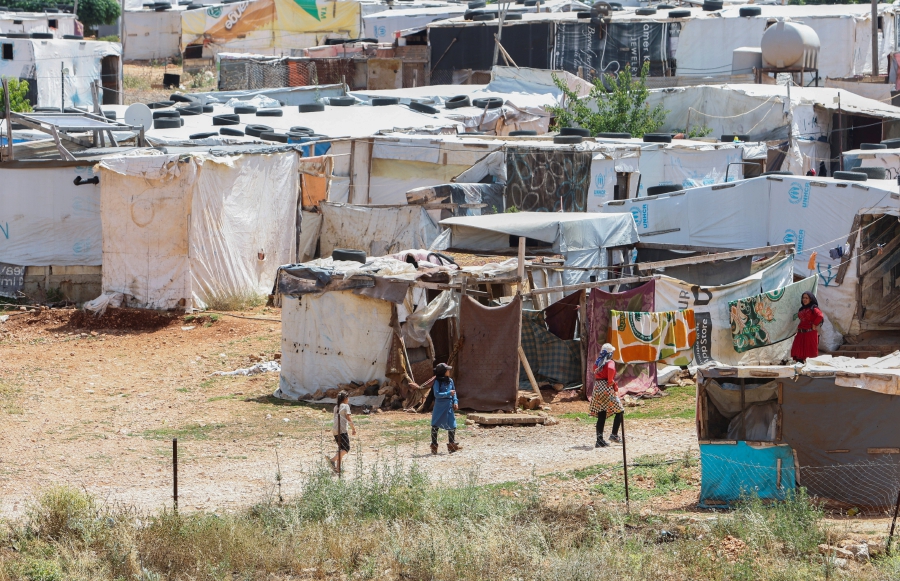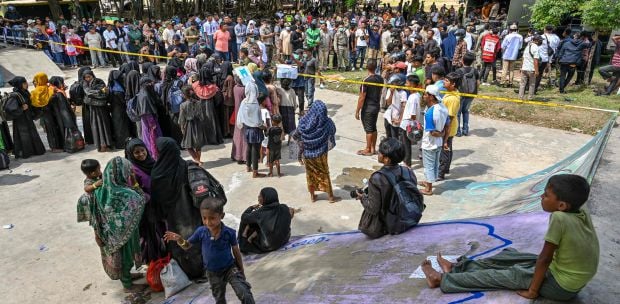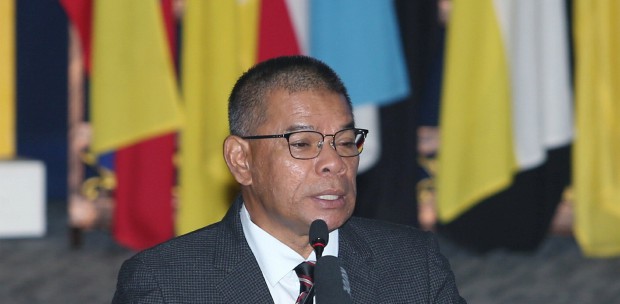THIS year's World Refugee Day themed "Hope Away from Home" serves as a powerful reminder of the challenges faced by displaced individuals. Malaysia, with its rich cultural diversity and tradition of hospitality, has the potential to be a beacon of hope for refugees.
Malaysia should prioritise developing a comprehensive legal framework that recognises and protects the rights of refugees by including provisions for access to education, healthcare and employment opportunities.
By collaborating with international organisations and aligning with international conventions, Malaysia can demonstrate its commitment to upholding human rights. Legal recognition and protection will empower refugees to contribute to society, hence, creating a sense of hope and belonging.
The Refugee Convention of 1951, also known as the 1951 Convention relating to the Status of Refugees, is a crucial international legal instrument that outlines the rights and protections of refugees and sets the standard for their treatment.
Malaysia should ratify the convention for several reasons. Ratifying the convention would provide a legally binding framework for Malaysia to protect and uphold the rights of refugees.
The convention defines who qualifies as a refugee, outlines their rights and establishes the principle of non-refoulement which prohibits the return of refugees to countries where they may face persecution or serious harm. By ratifying the convention, Malaysia would demonstrate its commitment to international human rights standards and provide a solid legal basis for addressing the refugee problem.
As a signatory to the convention, Malaysia would gain access to international cooperation and technical assistance from organisations such as the United Nations High Commissioner for Refugees (UNHCR). Cooperation with international partners can provide valuable resources, expertise and support in managing the refugee situation.
Ratifying the convention would also enhance Malaysia's ability to work collaboratively with other nations, share best practices and access funding as well as technical assistance to address the challenges associated with hosting refugees.
The convention provides clear guidelines and procedures to determine refugee status and ensures a fair and transparent process. Ratifying the convention would establish a standardised framework for assessing and recognizing refugees, ensuring consistency and fairness in decision-making.
This would help address any ambiguity and confusion in dealing with refugees' claims and provide a clear roadmap for managing the refugee problem in Malaysia.
Ratifying the convention would strengthen the protection afforded to refugees in Malaysia as it obligates states to ensure refugees have access to fundamental rights such as education, healthcare, and legal employment opportunities.
By ratifying the convention, Malaysia would commit to providing these essential services to refugees, enhancing their well-being and supporting their integration into society. This would contribute to a more inclusive and compassionate approach in addressing the refugee problem.
Ratifying it would also bolster Malaysia's regional and global standing and demonstrate Malaysia's willingness to fulfil its international obligations to protect refugees. By taking a proactive stance in refugee protection, Malaysia can strengthen its reputation as a responsible and compassionate nation, potentially influencing and inspiring other countries in the region to follow suit.
Such a move also serves as a significant step towards finding long-term solutions to the refugee problem. The convention encourages states to work towards resolving the underlying causes of displacement and seek durable solutions, including voluntary repatriation, local integration or resettlement.
Malaysia would join the international community in striving for sustainable solutions, rather than solely managing the immediate consequences of forced displacement if it ratifies the convention.
Apart from strengthening the country's legal framework to foster a sense of belonging, Malaysia needs to invest in comprehensive integration programs for refugees. Language and vocational training initiatives can equip refugees with the necessary skills to enhance their employability and facilitate their integration into Malaysian society.
Moreover, community engagement programmes, cultural exchanges, and awareness campaigns can bridge the gap between refugees and the local population, promoting empathy, understanding, and respect.
Education is key to empowering refugees and building hope for their future. Malaysia should prioritise providing equitable access to quality education for refugee children.
Collaborations with educational institutions, NGOs, and international agencies such as UNHCR can facilitate the enrolment of refugee children in schools, ensure language support, and offer skill development programs. By investing in education, Malaysia can nurture the potential of young refugees, helping them overcome adversity and strive for a better future.
Finally, empowering refugees with economic opportunities are crucial for their self-reliance and long-term integration. Malaysia can create pathways for refugees to access employment, entrepreneurship and vocational training programmes.
By removing legal barriers and establishing partnerships with the private sector, Malaysia can unlock the potential of refugee communities. Economic empowerment not only enhances refugees' self-worth and dignity but also strengthens the nation's economy by tapping into their skills and talents.
This country has the opportunity to reflect on its progress and chart a way forward that embodies compassion, inclusivity, and hope for refugees.
By strengthening the legal framework, investing in integration programmes, ensuring access to quality education, creating economic pathways and fostering public awareness, Malaysia can transform the lives of refugees and demonstrate its commitment to humanitarian principles.
Let us stand together on this day - June 20 - united in our pursuit of a brighter future for all those who seek hope away from home.
The writer is founder and chairman of the Centre For Human Rights Research and Advocacy (Centhra)





